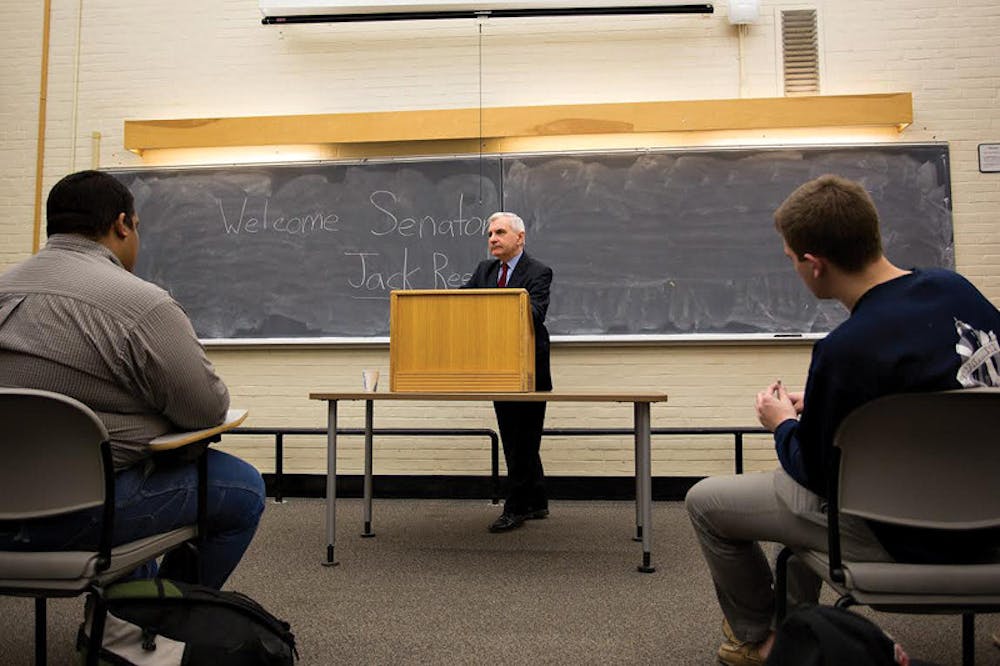Sen. Jack Reed, D-R.I. addressed budgetary concerns, the Affordable Care Act and foreign policy issues in a speech to the Brown Democrats Tuesday night in Wilson Hall.
Reed has served in Congress for 25 years — including 18 as a Senator — and is the ranking Democrat on the Senate Armed Services Committee. He has championed numerous pieces of reform legislation, including immigration, women’s reproductive rights, gun control and education.
“These young men and women are going to be the leaders of our country in many different roles — academics, business, science, maybe even politics,” Reed told The Herald, referring to his decision to speak to the Brown Democrats. “But more importantly, they are committed to contributing to the community, not just on their own advancement, but for the advancement of something beyond themselves,” he said.
Reed began by criticizing the Republican budget proposal, tying the proposal to growing income inequality in the United States and arguing that the current approach will only exacerbate the wealth gap.
Continuing on the theme of economic parity, Reed emphasized the importance of affordable education. “Student debt is the second-largest form of individual debt in the country,” he said. “It’s going to prevent some students from going to school.”
Rising education costs “slow down our economy, as well as individual progress,” Reed told The Herald, adding that community colleges and technical training offer crucial alternatives to four-year schools, making education available to more people.
The Affordable Care Act took up a significant portion of the discussion. “It’s a great achievement, but very underrated,” he said of the legislation, which has expanded Medicaid, extended coverage for young adults and eliminated exclusions for pre-existing conditions. Though many Republicans criticized the bill, arguing that it would stagnate or deter job growth, Reed argued that it has helped promote the strongest job growth since the ’90s.
Reed, who visited troops in Afghanistan and Iraq three weeks ago, stressed growing complications in foreign policy. Unlike during the Cold War era, when instability was largely unilateral, current foreign unrest is multifaceted and stems from “many different sources,” Reed said. These include Iran and North Korea, non-state actors such as ISIS and Al Qaeda and “non-status quo states” such as Russia and China, Reed said. Additionally, more sophisticated terror tactics, the expansion of cyberspace and fears of nuclear proliferation all pose 21st century challenges to foreign policy, Reed said. Despite the shifting post-Cold War landscape, Reed does not see U.S. power as threatened, even as countries such as China claim hegemonic clout in their parts of the world.
Climate change and immigration are two areas in which Reed was not hopeful for what he considers necessary legislative progress.
“Climate change is going to be awfully difficult to get through,” Reed said, adding that some senators swear it “just doesn’t exist” while others acknowledge its existence but “don’t see it as a compelling need.”
An immigration bill similarly does not have the support to come to fruition, especially in the House, Reed said.
“It was wonderful to have him speak about foreign policy,” said President of the Brown Democrats Meghan Holloway ’16.
“There’s a lot of stuff going on in the world right now, so having someone with expertise and knowledge on the area speak to us and give us his invaluable opinions was a wonderful experience,” Holloway said.





